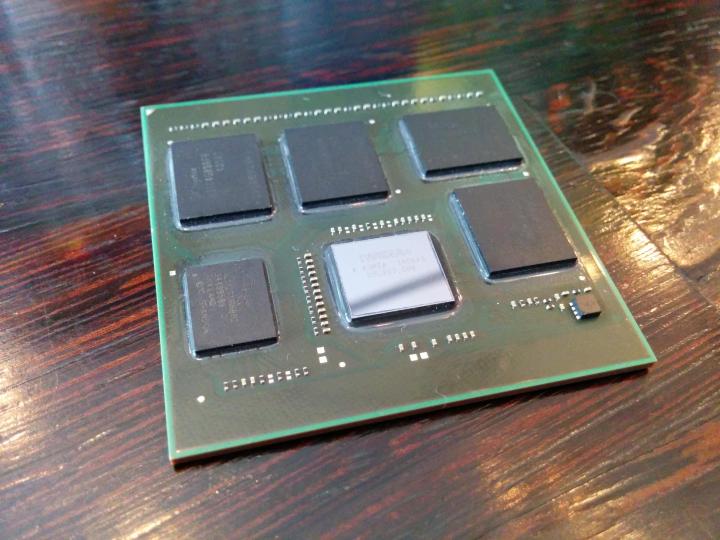
Note: This story has been updated throughout with clarifications from Nvidia.
Google will unveil one small portion of its push to smarten the ordinary auto at the Google I/O conference this week, tech partner Nvidia said on Tuesday.
At the California conference, where the company is expected to discuss everything from smartwatches to “quantum paper,” the company will show off Google Auto Link, an automotive head unit that connects to smartphones running the Android operating system is and a clear rival to Apple’s CarPlay system.
Google’s system will be controlled via the steering wheel and used largely for infotainment at present, including consumer applications such as music and mapping. But the 192-core, “supercomputing” power of the Tegra chips that power Nvidia’s larger car platform — and is likely to be in Google’s Auto Link — will ultimately be able to do much more. Nvidia plan a much tighter integration to the automobile, through an embedded system that’s capable of customizable, photorealistic digital instrument panels and advanced driver assistance – meaning steering, parallel parking, safety systems that avoid collisions, and more, just like the self-driving cars that Google has shown off.
This won’t be Google’s self-driving tech, however.
“Google’s cheating,” joked Daniel Shapiro, senior director of automotive for Nvidia, at a New York City event.
The Tegra platform can run multiple OSes simultaneously, dedicating only some of its processing cores to analyzing real-time video to avoid collisions and steer, for example.
The Tegra platform, on the other hand, analyzes in real-time video of the surrounding environment in order to avoid collisions and steer, for example. It’s simply a different approach to the problem — both are computational nightmares. And because it’s able to run multiple operating systems simultaneously, it can dedicate only some of its processing cores to a real-time platform such as QNX, and at the same time dedicate other cores to an OS such as Android to power voice recognition and YouTube or Netflix for the kids in the back seat.
“Nvidia being used for safety systems – that’s the beginning of a big industry shift,” explained Roger Lanctot, associate director of the Global Automotive Practices for research firm Strategy Analytics.
“Google wants to be in the car but they want to control those implementations. They don’t want forks of Android, like Amazon’s Fire OS,” he told Digital Trends.
Regardless of how self-steering cars come about, the technology remains a long way off. There are approximately 5 million cars on the road with Nvidia chips in them, Shapiro said. None of them are currently being used for safety and driver assistance features. There will be over 25 million more cars in the next few years, from names such as BMW, VW, Porsche, Tesla and Audi. Of those cars, only a small percent will be using the chips for some form of autonomous navigation, he said.
Car companies have instead been opting for small steps towards automation, including such features as parallel parking assistance and cars that park themselves.
Audi has been a key partner for Nvidia to date. The company said other European models from partners incorporating its technology are likely to be unveiled at the Paris Auto Show this fall. Production units are expected by the end of the year, though they likely won’t make U.S. shores in that time.
Auto Link, as the technology has been called in several reports, is the first product of the OAA, or Open Automotive Alliance, a partnership between Google and Nvidia and several automotive companies including GM and Audi to create a standardized, easily expanded platform for automotive technology.
Nvidia would not confirm when cars with embedded versions of Android will appear.
“The expectation is that the next step for the OAA will be an embedded version of Android used as the operating system for infotainment systems,” a spokesman said.
Editors' Recommendations
- The 6 biggest announcements we expect from Google I/O 2024
- 5 things we’d love to see at Google I/O 2023 (but probably won’t)
- Google Pixel 6a vs. Apple iPhone SE (2022)
- Google I/O 2020 is now completely canceled, including any online events
- Google I/O 2020 dates now set in stone, and that means Android 11 is coming




